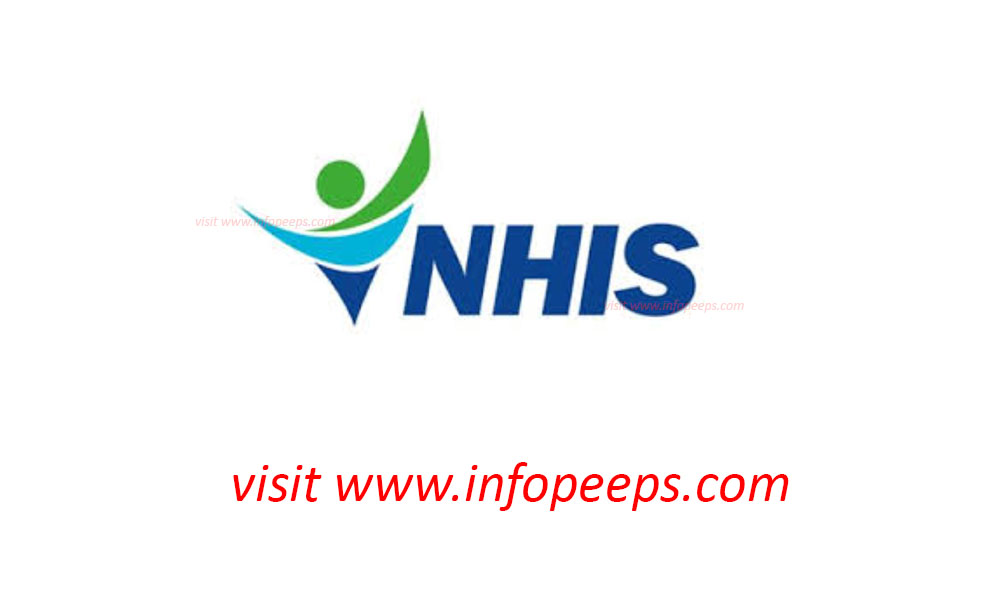National Health Insurance Scheme. Ghana has made notable strides in ensuring its citizens have access to high-quality healthcare services by implementing the National Health Insurance Scheme (NHIS). The government has taken substantial measures to establish and operate this program. In this post, we will explore the National Health Insurance Scheme in Ghana, its key features, benefits, and the process of enrollment.
What is the National Health Insurance Scheme (NHIS)?
The National Health Insurance Scheme, introduced in 2003, is a social intervention program by the Ghanaian government to provide healthcare coverage to its citizens. It operates under the National Health Insurance Act, Act 852, and is administered by the National Health Insurance Authority (NHIA). The scheme is designed to pool resources through contributions from subscribers and provide them with access to a wide range of healthcare services
Related Links:
Key Features and Benefits
Coverage: The NHIS covers a broad range of healthcare services, including outpatient care, inpatient care, surgeries, emergency services, maternal care, and essential medications. The scheme also includes preventive and primary healthcare services
Affordability: One of the primary goals of the NHIS is to make healthcare affordable for all Ghanaians. To achieve this, the scheme offers different membership categories based on income levels, ensuring that even the economically disadvantaged can access quality healthcare services
Portability: The NHIS is portable within Ghana, allowing subscribers to access healthcare services across the country. This feature is especially beneficial for individuals who frequently travel or reside in different regions
Family Coverage: The NHIS provides the option for family coverage, allowing subscribers to include their dependents, such as spouses and children, under a single policy. This ensures that families have comprehensive healthcare coverage
Cashless System: Under the NHIS, subscribers can receive healthcare services without paying cash at the point of service. Instead, healthcare providers are reimbursed directly by the NHIA. However, there may be certain services or medications that require co-payments or exemptions
Related Link: Ghana Card Registration & Replacement Questions & Answers
Enrollment Process
Eligibility: To enroll in the NHIS, you must be a Ghanaian citizen or a legal resident. All residents, regardless of age or occupation, are eligible for membership
Registration: The NHIS registration process involves visiting a nearby NHIS office or registration center. You will need to provide personal information, proof of identity, and complete the required application forms. The registration staff will guide you through the process and explain the available membership options
Premium Payment: Upon registration, you will be required to pay a premium based on the chosen membership category. The premium amounts are determined by income levels and are typically paid annually, biannually, or quarterly. Some vulnerable groups, such as children under 18 years and the elderly, may be exempt from premium payment
Issuance of NHIS Card: Once your registration and premium payment are processed, you will be issued an NHIS card. This card serves as proof of membership and must be presented when seeking healthcare services
Benefits of NHIS
To access healthcare services under the NHIS, present your NHIS card at any accredited healthcare facility. The provider will verify your eligibility and provide the necessary care without requiring immediate payment. Some services may have specific coverage limits or additional requirements, so it’s essential to familiarize yourself with the NHIS benefit package or consult the NHIA for more information
How NHIS is Funded
- The National Health Insurance Levy (NHIL), which is 2.5% levy on goods and services collected under the Value Added Tax (VAT)
- 2.5 percentage points of Social Security and National Insurance Trust (SSNIT) contributions per month
- return on National Health Insurance Fund (NHIF) investments
- premium paid by informal sector subscribers
Categories of NHIS Health Care Facilities
Several categories of health care facilities have been credentialed by the National Health Insurance Authority (NHIA) to provide services to subscribers, these are
- Community-based Health Planning and Services (CHPS)
- Maternity homes
- Health centres
- Clinics
- Polyclinics
- Primary hospitals (district hospitals, CHAG primary hospitals, quasi- Government primary hospitals and private primary hospitals)
- Secondary hospitals
- Tertiary hospitals
- Pharmacies
- Licensed chemical shops
- Diagnostic centres
Government NHIS Allocation
NHIS subscribers fall into two broad groups, the informal and exempt groups. It is only the informal group that pays premium. Members of the exempt group do not pay premium, they are
- Formal sector employees and the self-employed who contribute to the Social Security and National Insurance Trust (SSNIT contributors)
- Children (persons under 18 years of age)
- Persons in need of ante-natal, delivery and post-natal health care services (pregnant women)
- Persons classified by the Minister for Social Welfare as indigents,
- Categories of differently abled persons determined by the Minister responsible for Social Welfare
- Persons with mental disorder
- Pensioners of the Social Security and National Insurance Trust (SSNIT pensioners)
- Persons above seventy years of age (the elderly)
- Other categories prescribed by the Minister
NHIS Contact Information
Address
No. 36-6th Avenue,
Opposite AU Suite,
Ridge Residential Area,
Accra.
Telephone
+233 (0) 302 238136/ 233255/ 216970/ 241690
Email us
Call Center
054 444 6447
Digital Address
GA-029-3976




